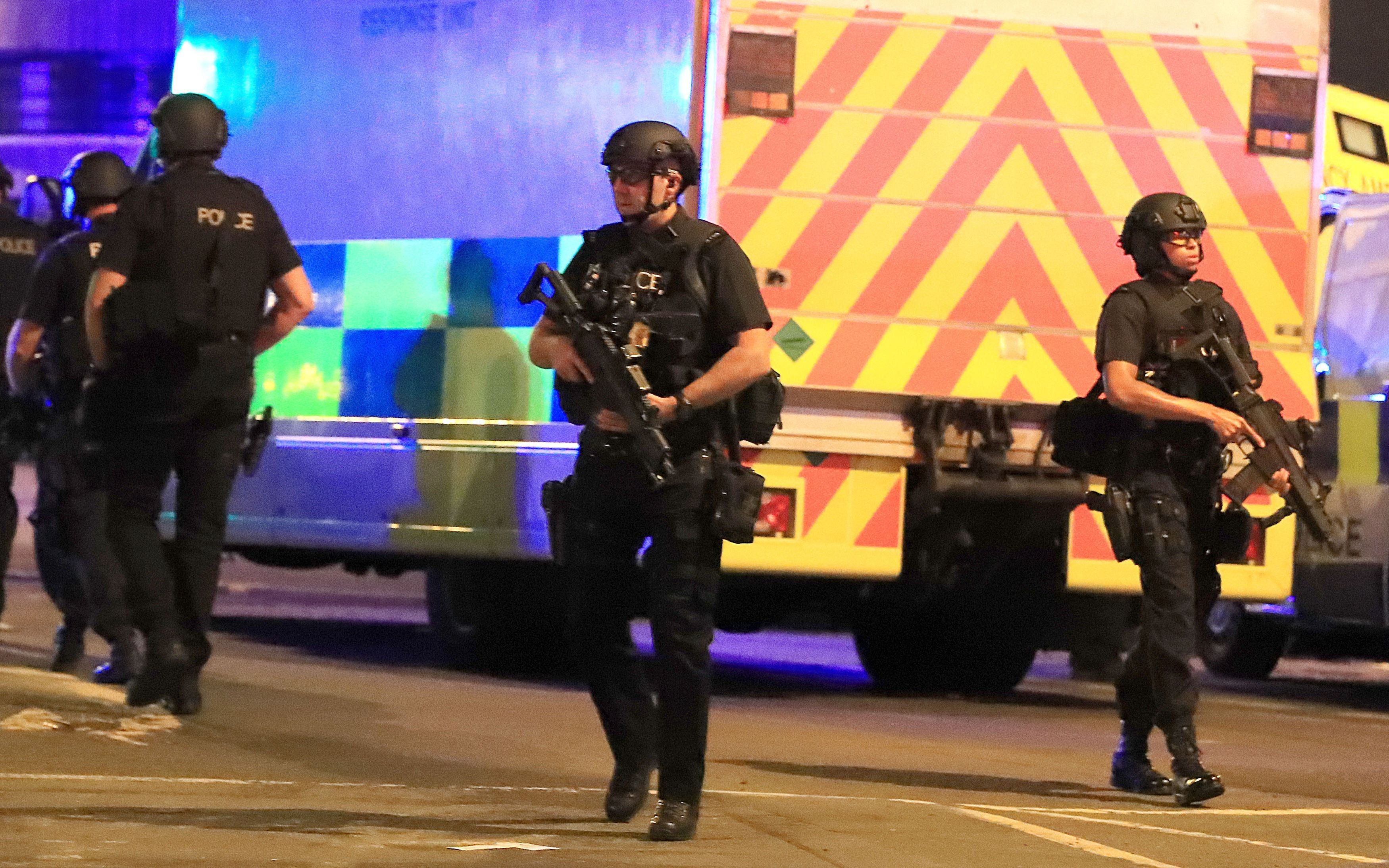Manchester Arena bombing inquiry: Police warned about attack response shortcomings six months before explosion
Inquiry hears Greater Manchester Police placed 'over-reliance' on force duty officer to lead response to terror attack

Your support helps us to tell the story
From reproductive rights to climate change to Big Tech, The Independent is on the ground when the story is developing. Whether it's investigating the financials of Elon Musk's pro-Trump PAC or producing our latest documentary, 'The A Word', which shines a light on the American women fighting for reproductive rights, we know how important it is to parse out the facts from the messaging.
At such a critical moment in US history, we need reporters on the ground. Your donation allows us to keep sending journalists to speak to both sides of the story.
The Independent is trusted by Americans across the entire political spectrum. And unlike many other quality news outlets, we choose not to lock Americans out of our reporting and analysis with paywalls. We believe quality journalism should be available to everyone, paid for by those who can afford it.
Your support makes all the difference.Greater Manchester Police were warned about shortcomings in their attack response plans just six months before the Manchester Arena bombing, a public inquiry has heard.
As part of a national review, the police inspectorate identified and outlined a number of concerns in a “hot debrief” with an assistant chief constable with the force in November 2016.
It concluded there was a risk of a force duty officer becoming overwhelmed in the event a marauding firearms attack was declared, which policing experts consider did happen on the night of the bombing in May 2017, as ambulance and fire and rescue services were not informed beforehand.
An attack of this nature would lead to the designation of a hot zone to which only suitably trained firearms officers can go, and decides when emergency services can assist casualties. At the time, such an event was codenamed Operation Plato.
The inquiry heard that just one paramedic was in the City Room foyer, where Salman Abedi detonated his bomb, killing 22 people, for the first 40 minutes after the blast. The first fire engine arrived more than two hours after the blast.
Andrew Buchan, associate inspector with Her Majesty’s Inspectorate of Constabulary and Fire and Rescue Services (HMICFRS), gave evidence on Monday and said it found that while GMP’s Plato plan was “very tactically focused”, it did not go into detail about working with other agencies.
He told counsel to the inquiry Paul Greaney QC had placed a “over-reliance” on the force duty officer (FDO) to lead their response to a terrorist attack.
The inspectorate’s report noted that “the number of tasks the FDO is expected to perform in all likelihood are so may that it may be some will not be completed or at least in the order expected”, the inquiry heard.
The GMP acknowledged that the pressures the FDO would be placed under would “bring its own challenges”, but left the matter unresolved, said the report.
“Such apparent vagueness may cause confusion or doubt in a live scenario,” it added.
“There is a need to provide the FDO with more immediate support or resources to assist with all the functions expected of that role.”
The report concluded: “There is no question that the FDO is being overloaded with tasks in the initial stages of a potential Plato and will require urgent help.”
The inspectorate also found that the GMP could do more to raise the level of understanding of its terror response plan among its unarmed police officers and control room staff. It also conducted focus group interviews with GMP staff and found that none of the unarmed officers questioned were aware of the plans or how to access them.
They also did not feel they knew what to do in response to a terror attack, the inquiry heard.
Duty inspectors questioned in another focus group said they felt “ill-prepared” and that the force should do more to train and test unarmed uniformed staff. One inspector said specific training “could actually save lives”.
In November 2016, the findings were given to then-assistant chief constable Cath Hankinson, who is now assistant chief constable at West Yorkshire Police. During this time, the terror threat level in the UK was severe.
Mr Buchan confirmed to Frank Howell, representing GMP, that he had not made notes of his meeting with Ms Hankinson and there was no follow-up letter or document in writing between himself and GMP.
He agreed with Mr Howell that the meeting would not have lasted for more than an hour.
The inquiry continues.





Join our commenting forum
Join thought-provoking conversations, follow other Independent readers and see their replies
Comments